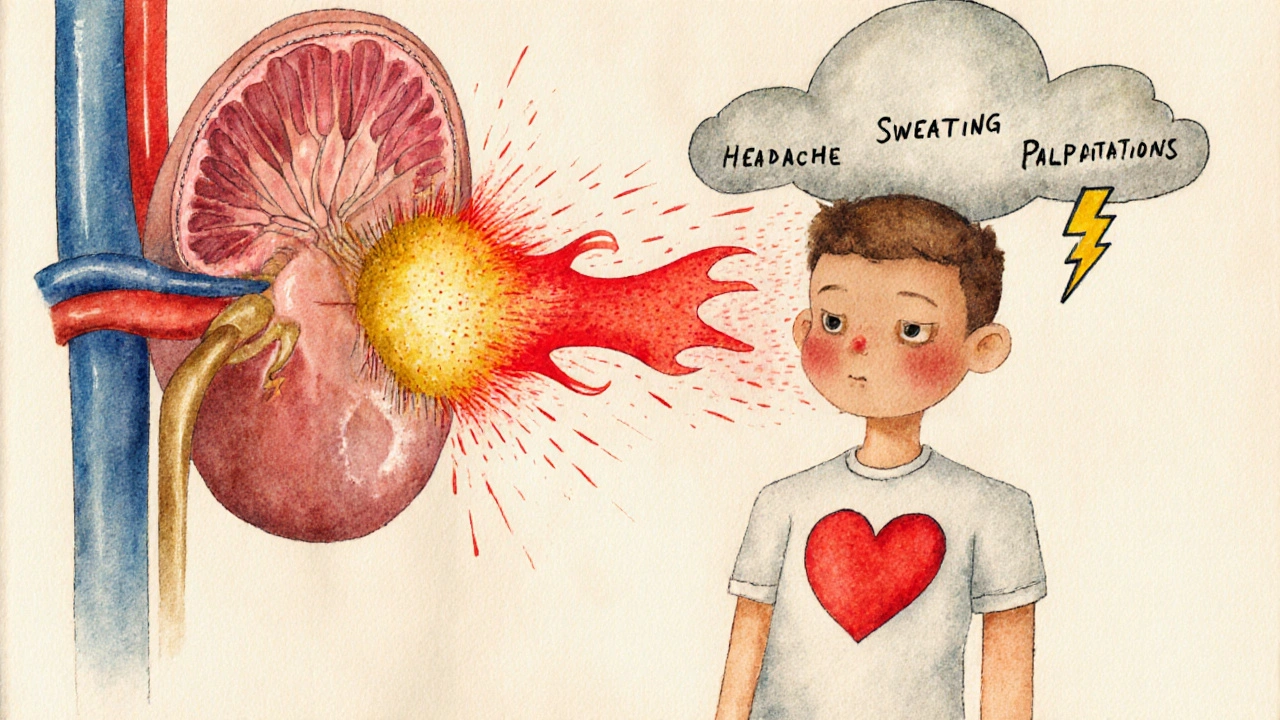Pheochromocytoma: Symptoms, Diagnosis, and Treatment Options
When your body produces too much catecholamines, hormones like adrenaline and noradrenaline that control heart rate, blood pressure, and stress response. Also known as adrenaline surges, these spikes can feel like a panic attack that won’t end. That’s often the first sign of pheochromocytoma, a rare, usually noncancerous tumor that grows on the adrenal glands and overproduces these stress hormones. It’s not common, but when it happens, it can be life-threatening if missed. People with this condition often have sudden, intense headaches, sweating so heavy it soaks clothes, heart palpitations that feel like a drum in the chest, and blood pressure that spikes without warning—sometimes over 200/120.
This tumor doesn’t show up on regular scans unless you know what you’re looking for. Doctors test for it by measuring catecholamines in your urine or blood, often after a stressful event or during a suspected episode. If levels are high, they’ll order an MRI or CT scan to find the tumor. Most pheochromocytomas are found on one adrenal gland, but about 10% affect both. A small number are linked to inherited syndromes like MEN2 or von Hippel-Lindau disease, so family history matters. The good news? Once found, it’s usually curable with surgery. But removing the tumor isn’t simple—you need a skilled surgeon and careful preparation. Medications like alpha-blockers are used weeks before surgery to stabilize blood pressure and prevent dangerous spikes during the operation.
What makes pheochromocytoma tricky is how easily it’s mistaken for anxiety, panic disorder, or even menopause. If you’ve had unexplained high blood pressure, especially if it’s sudden and severe, and no other cause shows up, this should be on the list. Left untreated, it can lead to stroke, heart attack, or organ damage. Even after surgery, follow-up is key—some tumors come back, and others may be malignant. You’ll need ongoing monitoring through blood tests and imaging. This isn’t a condition you manage with lifestyle changes alone. It needs precise medical intervention. Below, you’ll find real patient stories, diagnostic checklists, and treatment comparisons that help cut through the confusion and point you toward what actually works.
Pheochromocytoma is a rare adrenal tumor that causes dangerous spikes in blood pressure through excess adrenaline. It’s often misdiagnosed as anxiety, but blood tests and surgery can cure it. Learn the symptoms, diagnosis, and why early detection saves lives.

